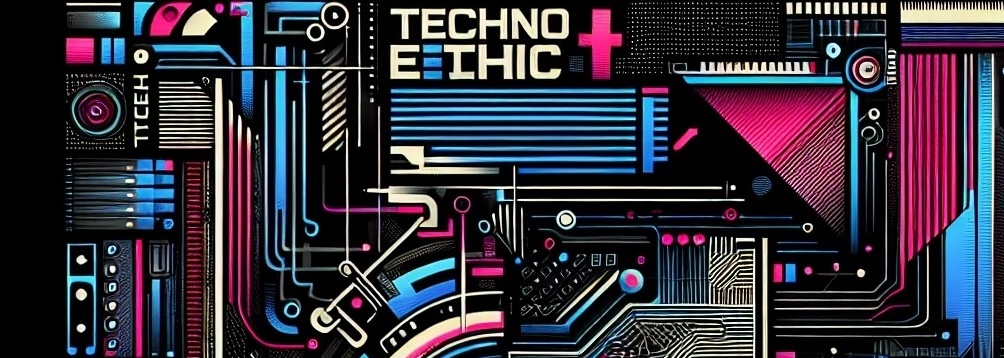During the Obama era, one of the popular tropes among Marxists was that of “capitalist realism.” Developed at length by the late Mark Fisher in his 2009 Capitalist Realism: Is There No Alternative? (as well as by the Slovenian Marxist gadfly Slavoj Žižek), capitalist realism suggests that, in the 21st century, not only is there no longer an alternative to capitalism, but it is difficult if not impossible even to imagine a system other than capitalism existing. Yet 2009 seems a long time ago. In America, we have seen the rise and fall of Obama, the rise and fall and return of Trump, and the long winter of COVID and post-COVID confusion. Meanwhile, the New Right, the post-liberals, and the integralists have arisen on the right, and the left, chastened by Trumpism and simmering from what they feel is a betrayal by the Biden administration and the undemocratic crowning of Kamala Harris, is quietly looking again at alternative forms of progressivism.
Many on the right see a new danger in Big Tech, which through social media has captured the hearts and minds (and wallets) of the world, and is engaging in a form of social engineering and censorship that looks more and more like the policies of the Chinese Communist Party. It is generally assumed by conservatives that the left is in love with Big Tech, which, until Elon Musk’s acquisition of Twitter (now X), was marked with a decidedly progressive stamp. However, left-wing Greek economist and former politician Yanis Varoufakis, in his most recent work, Technofeudalism: What Killed Capitalism, provides a trenchant critique of Big Tech, which Varoufakis, strangely enough, identifies as a force that not only may eradicate the exclusivity represented by capitalist realism but destroy capitalism as we know it.
Drawing from a variety of myths and anecdotes from his ancient Greek ancestors, Varoufakis argues that, just as the Mediterranean world was remade by the introduction of iron (memorialized by Hesiod in his “Five Ages” myth), so too is our world entering into a new era. Just as iron shattered the Bronze Age (as iron tools clashed against weaker bronze instruments), the digital age is replacing the industrial, Fordean capitalism of the late electronic age. The Iron Age, like our own digital age, also changed the way in which time was experienced, accelerating the process of technological development.
Varoufakis identifies his method as Marxist but his policies as social democratic. He recognizes that the triumph of American Western liberal capitalism with the fall of the Soviet Union was not just the death knell of totalitarian communism but the end of social democracies. The ’90s were famously the decades of the Clintons and the Blairs, who crafted a “proto-woke” form of capitalism, combining liberal economic policies with the welfare state and what at the time was known as “political correctness.” One of Varoufakis’ primary goals in Technofeudalism is to revive a libertarian leftism, which Varoufakis identifies with various civil rights movements of the 19th and 20th centuries. He argues that the totalitarian regimes of the 20th and 21st centuries associated leftism and Marxism with oppressive communist regimes almost exclusively.
Like other left-wing thinkers, Varoufakis presents a Marxist reading of the development of capitalism. He notes that capitalism underwent a marked shift in the mid-20th century—from simply providing goods and services to manipulating human desire. Combined with the power of advertising, capitalism was able to manipulate emotions and “manufacture” desire in a very powerful way. Varoufakis gives the example of Mad Men’s Don Draper’s famous “Hershey Bar Pitch,” in which he notes that Hershey’s is not just selling chocolate, but offering a deep experience of nostalgia. Thus, the fictional Don Draper nonetheless represents a new form of information-based capitalism. He also represents the paradox of capitalism, which Varoufakis insists tends to commodify all of existence. Yet some things still need to remain outside of commodification as “experiences” that capitalism can offer. The Hersey bar, in Varoufakis’ view, is now the “simulacrum” or symbol of another value that cannot be obtained or commodified.
As he leads up to the development of Don Draper’s Ad Age, Varoufakis crafts a chronicle of capitalism as one driven by technology. Thomas Edison’s electricity jolted capitalism to life in the early 20th century and led to the Roaring Twenties, culminating in the stock market crash of ’29. FDR introduced the U.S. to the welfare state and elements of democratic socialism with his New Deal. The New Deal era, according to Varoufakis, crafted a relationship between government and big business that produced such wonders as the Manhattan Project and jet propulsion, but that also created the “revolving door” between big business and big government, a phenomenon that has traditionally drawn criticism from both the right and the left. The enormous corporations forged during the Second World War formed what Varoufakis calls, drawing from John Kenneth Galbraith, the “technostructure,” as well as the Bretton Woods system.
During the mid-20th century, the technostructure developed an extremely powerful tool: what Varoufakis calls “commodified television.” Commodified television is built upon the realization that the attention of television watchers can be commercialized—exploited—and sold to advertisers. Thus came the world of Don Draper and ad execs. Varoufakis notes, however, that the American middle class was not big enough to profit from exclusively. As a result, Japan and Europe became attached to the American economy by linking foreign currencies to the U.S. dollar.
Varoufakis admits that this was “capitalism’s golden age,” which ended with the “Nixon Shock” of 1971—the end of the gold standard. The Nixon Shock, according to Varoufakis, initiated an era of financial speculation, which he calls the “Global Minotaur” and what other thinkers have called globalization or financialization. This Global Minotaur was predicated on American consumption and American debt—as well as the “recycling” of global debt. The Nixon Shock, Varoufakis acknowledges, was, on one level, a success, and the dollar rebounded. Yet this success was made possible by neoliberalism, or the destruction of previous social democratic structures, as well as by the personal computer, which enabled rapid and complex financial processes to be performed on a wide scale. According to Varoufakis, the Global Minotaur was mortally wounded (but not killed) in the 2008 stock market crash.
Capitalism was down but not out in 2008. It is, however, now threatened by a new economic system enabled by the defining 21st-century technology: digitalization. This new economic and social system is what Varoufakis calls “technofeudalism,” or Cloud Capitalism. Varoufakis uses another example from Greek culture and history to illustrate his point: the coming of the Dorians and the establishment of a feudal system in ancient Greece. Technofeudalism and Cloud Capitalism are fundamentally restrictive of freedom in ways that the Marxist Varoufakis admits capitalism never was previously. Providing examples such as Alexa and Google AI, Varoufakis notes that the new Cloud Capitalists are able to monitor and control and manufacture desire in ways Don Draper and the mid-20th-century ad execs could never have dreamed of. The Cloud Capitalists of Google, Amazon, and social media sell user information to other companies, which bombard internet users with ads. Finally, Cloud Capitalists own the servers on which so much of the world’s business is transacted. Unlike earlier forms of capitalism, the internet is becoming increasingly controlled and locked down, and businesses are now merely tenants holding fiefs with the Cloud Capitalists. Varoufakis notes that the new monetized internet is a decline from its early days, when the web was about the free disclosure and sharing of information and goods.
In Technofeudalism: What Kind Capitalism, Varoufakis presents a warning to the reader that is, like so many of his examples, derived from the mythology of Hesiod: technology brings Nemesis, or divine punishment from the gods. In our contemporary milieu, there is a general sense that technology has overwhelmed humans, and Nemesis has already come. It is a dominate trope that social media and heavy screen use has been catastrophic to the emotional and mental development of the past couple of generations. Moreover, humans are more lonely and miserable than they have ever been. In Technofeudalism, Yanis Varoufakis offers a main tendue, or friendly hand, to conservative libertarians. The book also raises some important questions on the nature of freedom and social order in an era in which both the right and the left are moving in an authoritarian direction.
The 20th century saw the dismantling of the world’s great functional monarchies in Austria, Germany, and Russia (and later Japan), as well as the brief rise and fall of right-wing socialist movements in Germany, Italy, France (to a degree), Spain, and Portugal. It also saw the long Cold War and eventual demise of Soviet communism. From roughly 1990 till at least 2008, it seemed as if democratic liberal capitalism was the only game in town—the end of history.
And yet, a whole host of movements on the right have proposed forms of (albeit moderate) socialism as well as authoritarianism. While these groups often look to medieval and 19th-century models (such as those brought to life by Bismarck and Napoleon), as Varoufakis notes (and Michel Foucault noted before him), contemporary technology in the hands of an ill-willed authoritarian regime would have horrific consequences (as it has in communist China and, in small doses, in the West).
What is needed today is a genuine conversation about the nature of liberty and a sober history of capitalism that points out its merits and flaws. There is no doubt that contemporary digital technology has had deleterious effects, especially the young. However, as Varoufakis notes, ages in history come and go, and there is always hope of a new era that will see not an omnivorous technology enslaving and devouring all in its path but a tool whose use is informed by virtue and the goal of human flourishing.

